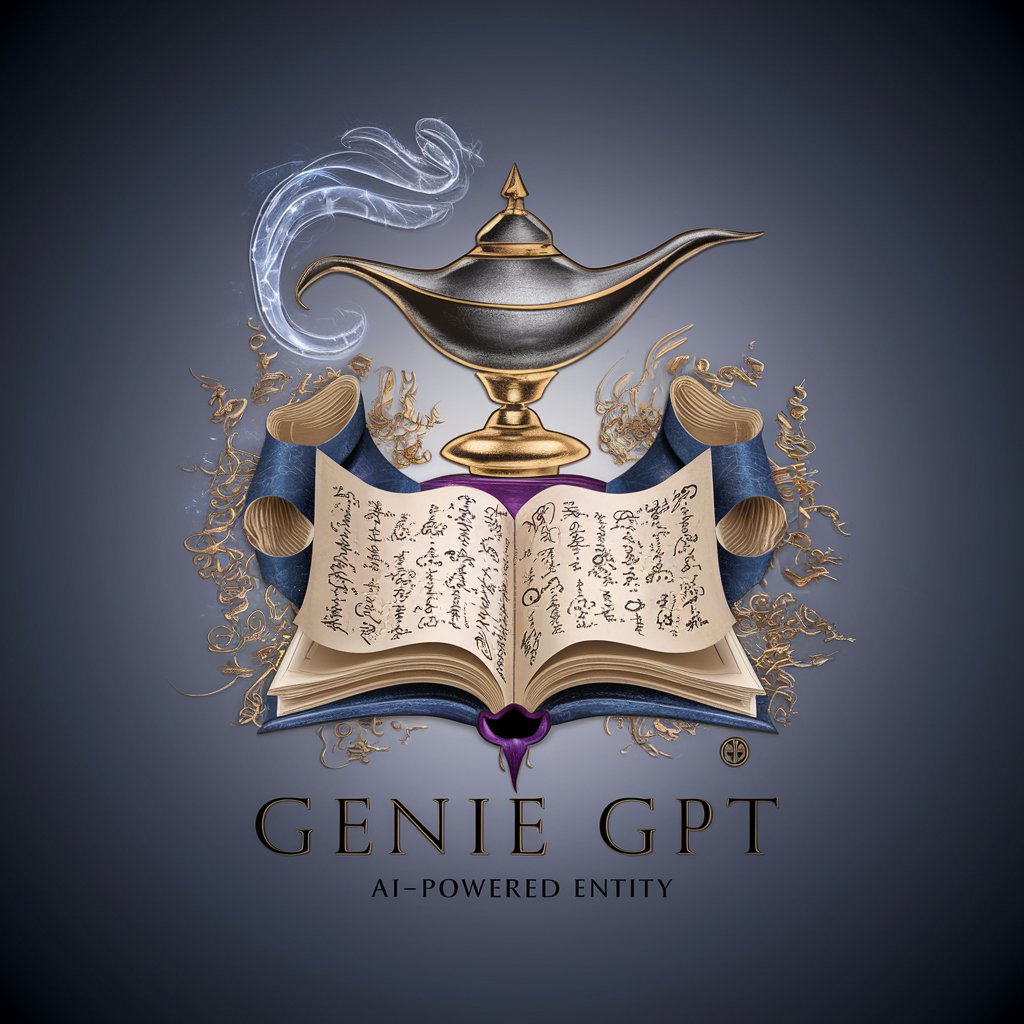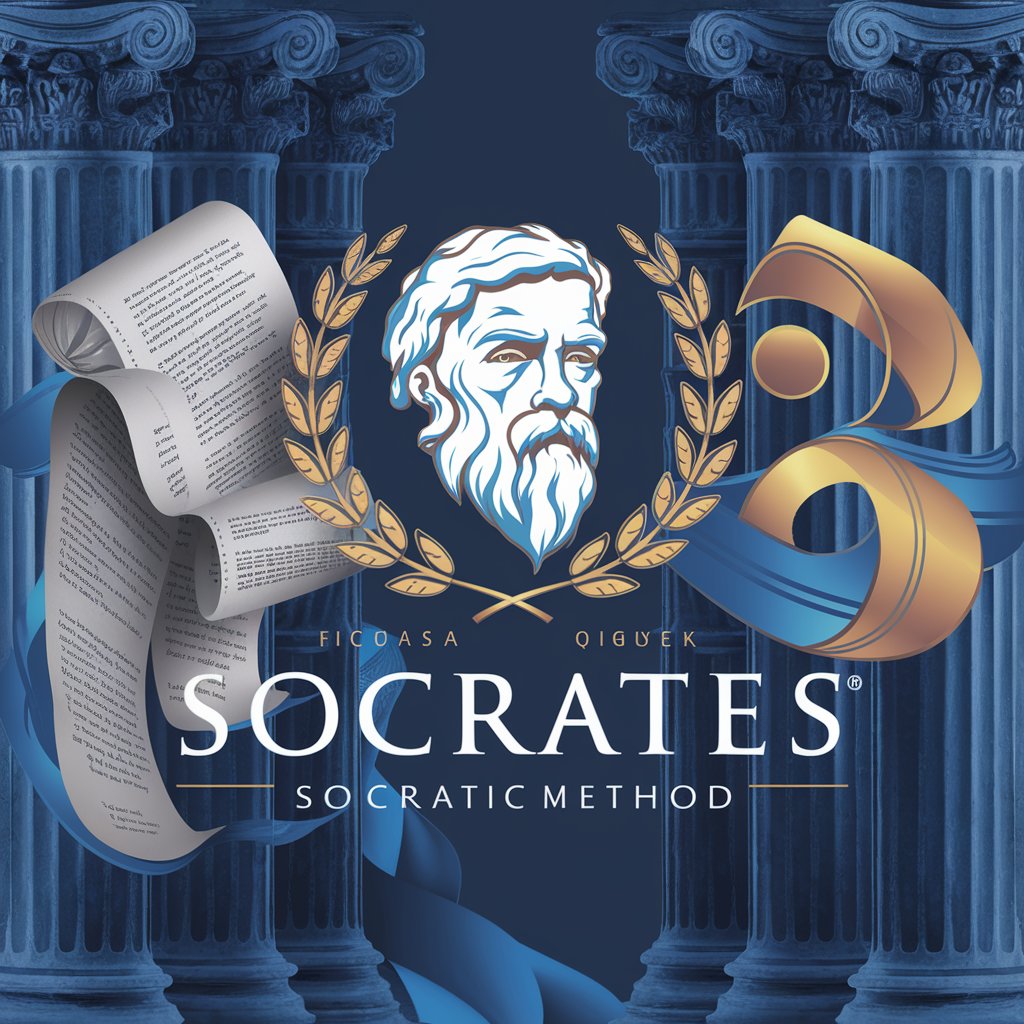11 GPTs for Reflective Dialogue Powered by AI for Free of 2025
AI GPTs for Reflective Dialogue are advanced computational tools developed using Generative Pre-trained Transformers technology, tailored specifically for enhancing interactions within the scope of reflective conversations. These tools are designed to facilitate a deeper understanding and engagement by simulating human-like dialogue. They analyze inputs to provide responses that encourage reflection, making them particularly relevant in educational, therapeutic, or coaching contexts where guided conversation is key. The integration of GPTs in this area underscores the potential of AI to offer customized dialogue solutions that can adapt to the nuances of human communication.
Top 10 GPTs for Reflective Dialogue are: Genie GPT,김아윤 / ENFP 썸녀 👩🏻,FrankenMind,Batty,Emotional Compass,Your ex gf,caca,Heraclitus Stream,Life,Harmony
Genie GPT
Unleash Imagination with AI-Powered Stories

김아윤 / ENFP 썸녀 👩🏻
Explore the Depths of Relationship Dynamics

FrankenMind
Unravel the Depths of Existence with AI

Batty
Enlightening insights with AI-powered reflection.

Emotional Compass
Empathetic AI for Cultural and Emotional Insight

Your ex gf
Rekindle memories with AI-powered affection.

caca
Elevating discourse with AI-powered philosophy

Heraclitus Stream
Ignite Reflection, Embrace Change

Life
Navigating Life's Depths with AI

Harmony
Explore the depths of harmony with AI.

Socrates Speaks
Enlighten Minds, AI-Driven

Key Attributes of Reflective Dialogue AI
AI GPTs for Reflective Dialogue stand out for their adaptability, enabling a broad spectrum of applications from simple conversational prompts to complex reflective discussions. Key features include advanced natural language understanding and generation, real-time feedback capabilities, and the ability to learn from interactions to improve response quality over time. Specialized functionalities might encompass language translation, technical troubleshooting, web-based research, creative imagery generation, and sophisticated data analysis, all aimed at enriching the reflective dialogue experience.
Who Benefits from Reflective Dialogue AI
The primary users of AI GPTs for Reflective Dialogue range from individuals seeking personal growth to professionals in education, therapy, and coaching. These tools are accessible to users without technical backgrounds, offering intuitive interfaces for engaging in reflective dialogue. Simultaneously, developers and tech-savvy professionals can leverage APIs and customization options to tailor the AI's functionality for specific contexts, making it a versatile asset across various sectors.
Try Our other AI GPTs tools for Free
Product Demonstrations
Explore how AI GPTs transform product demonstrations with dynamic, intelligent interactions, tailored to engage and inform across industries.
Training Material
Discover how AI GPTs for Training Material revolutionize learning with personalized, adaptive content creation for educators, trainers, and learners.
Artistic Enhancement
Discover AI GPTs for Artistic Enhancement: innovative tools designed to augment creativity across artistic fields, offering tailored solutions for novices, developers, and professionals alike.
Design Prototyping
Explore AI GPT tools for Design Prototyping: an innovative approach to streamline your design process, from concept to prototype, with ease and efficiency.
Conceptual Artwork
Explore the intersection of AI and conceptual art with GPT tools designed to generate, analyze, and interpret abstract art, offering innovative solutions for artists, critics, and enthusiasts.
Emotional Reflection
Explore AI-powered Emotional Reflection tools designed to understand and mirror human emotions, offering personalized insights and support for personal growth and mental health.
Expanding Horizons with Reflective Dialogue AI
Reflective Dialogue AI tools exemplify the potential of GPTs to offer bespoke solutions across various sectors. They feature user-friendly interfaces that democratize access to AI-powered dialogue, and their integration capabilities allow for seamless incorporation into existing digital ecosystems, enhancing the depth and quality of reflective conversations.
Frequently Asked Questions
What exactly is AI for Reflective Dialogue?
AI for Reflective Dialogue refers to AI technologies, particularly GPTs, designed to facilitate conversations that encourage introspection and personal insight. These tools simulate human-like interactions to support users in exploring their thoughts and feelings.
How do these AI tools adapt to different reflective dialogue needs?
Through machine learning and natural language processing, these AI tools analyze dialogue patterns and user responses to tailor conversations to individual needs. They can adjust complexity and tone based on the context and user feedback.
Can non-technical users easily access these AI tools?
Yes, these AI tools are designed with user-friendly interfaces that require no coding knowledge, making them accessible to a wide audience, including non-technical users.
What customization options are available for technical users?
Technical users can access APIs and development tools to customize AI behaviors, dialogue flows, and integrate with existing systems or workflows for more specialized applications.
Are there privacy concerns with using AI for Reflective Dialogue?
Privacy is a key consideration. Reputable tools implement stringent data protection measures and encryption to safeguard user interactions. However, users should review privacy policies to understand data handling practices.
How can these AI tools be integrated into educational settings?
In educational settings, AI for Reflective Dialogue can be used to support personalized learning, facilitate reflective writing exercises, and provide real-time feedback to students on their reflective processes.
What advancements are driving the effectiveness of these AI tools?
Advancements in natural language processing, machine learning algorithms, and user interface design are key factors enhancing the effectiveness and accessibility of these AI tools for reflective dialogue.
Can these tools replace human interaction in therapy or coaching?
While AI tools can supplement therapy or coaching by providing additional reflective prompts and support, they are not designed to replace human interaction. Professional guidance is crucial for addressing complex personal issues.